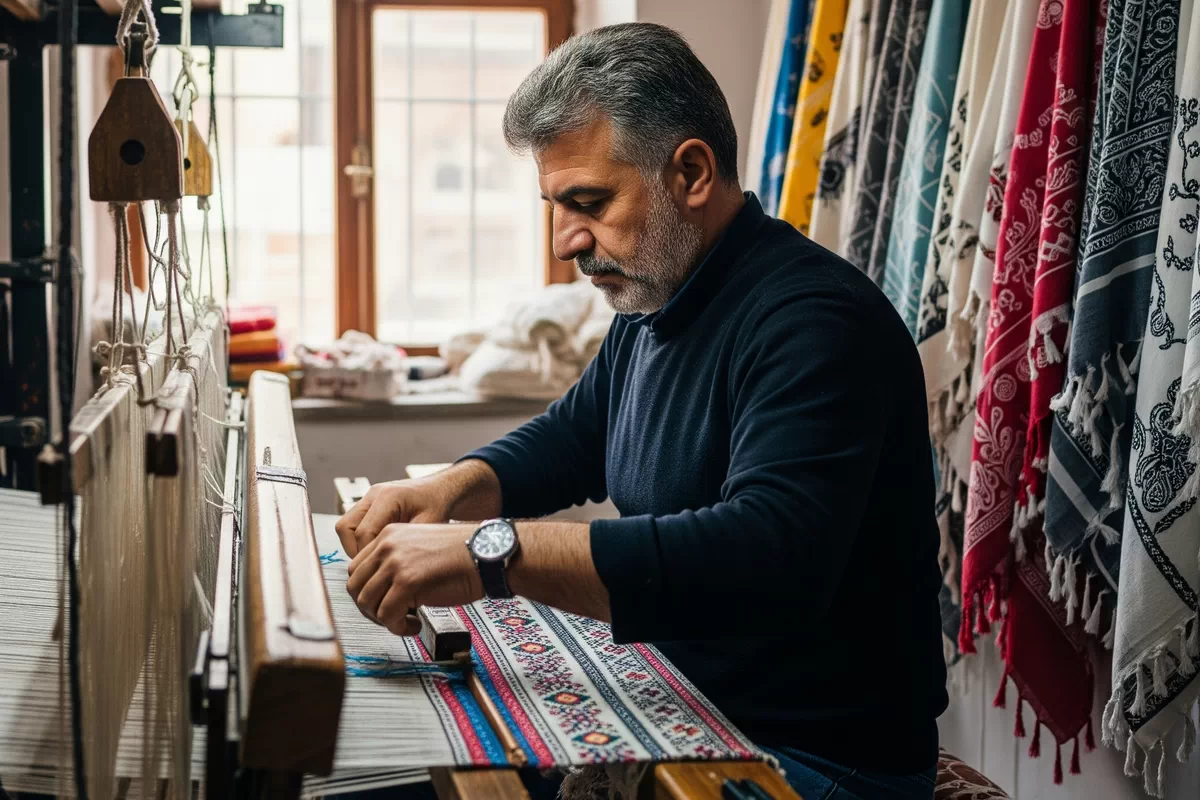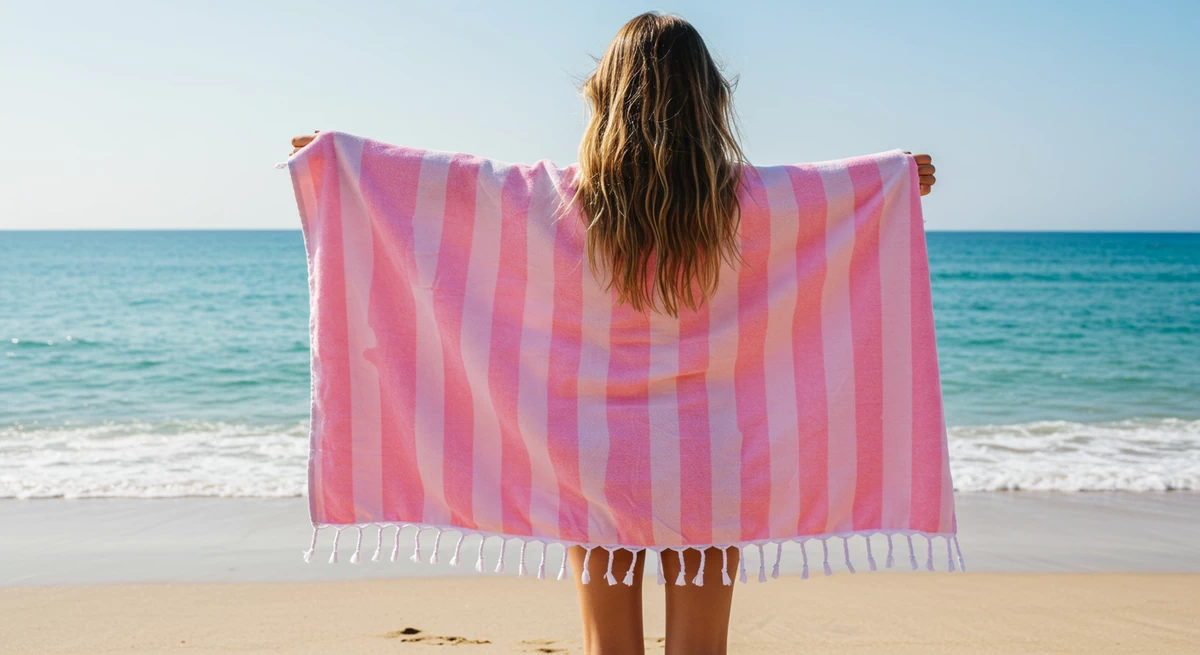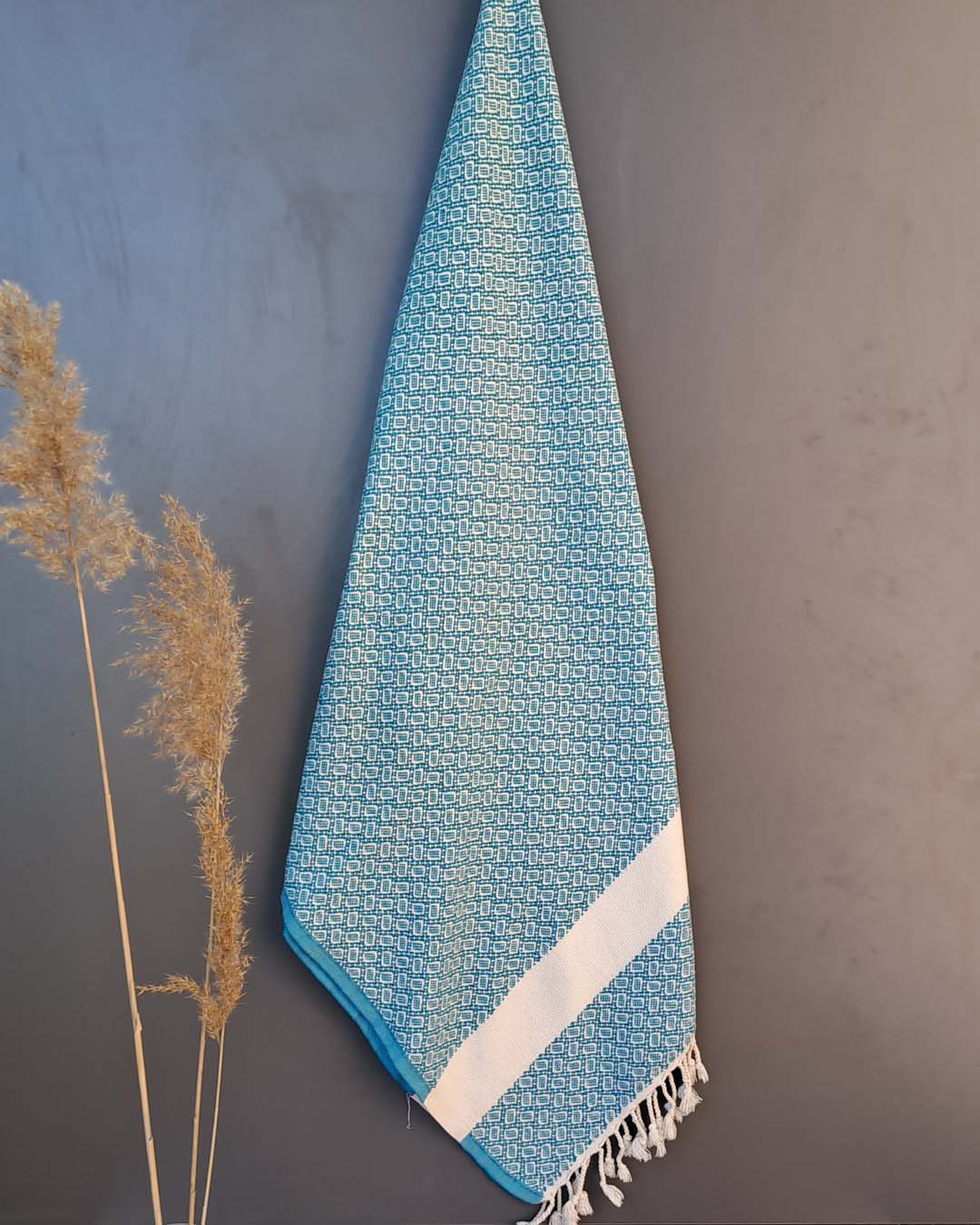What to Look for When Buying Peshtemals Wholesale? 7 Golden Criteria for Choosing the Right Manufacturer
In recent years, Peshtemal has expanded its scope of use beyond bath and hammam products to include beach fashion, home textiles, gift items, and decorative items. As such, wholesale Peshtemal purchases have become one of the most important steps in branding for boutique brands, hotels, spa centers, and e-commerce sellers operating in this field.
However, it is not possible to say that every company claiming to be a “manufacturer” offers the same quality, reliability, and sustainability. Unfortunately, many buyers today experience financial and emotional losses due to low-quality products, late deliveries, and issues with missing documents and labeling. This process can be quite risky, especially for entrepreneurs and buyers who are placing large orders for the first time.
In this article, we will explain step by step how you can minimize the risks you may encounter in the wholesale peshtemal towel production process and how to choose a reliable and high-quality manufacturer. As an expert with years of experience in this industry, I will address both the real challenges faced by buyers and the building blocks of long-term, seamless partnerships.
With this guide, you can maximize your time and budget by working with the most suitable manufacturer.

1. Quality and Material Guarantee
Fabric quality is one of the most critical issues in wholesale peshtemal purchases. This is because the durability, water absorbency, skin-friendliness, and overall customer satisfaction of a peshtemal depend directly on the yarn used, the weaving density, and the finishing processes. Unfortunately, many peshtemals sold at low prices on the market are made with synthetic yarn blends and lose both their appearance and functionality after a few washes.
For experienced manufacturers like us, quality is the foundation of production. Therefore, the following questions must be asked during every wholesale purchase process:
What yarn is used?
- Is it 100% cotton, bamboo, linen, or recycled yarn?
- Is it certified? (e.g., Oeko-Tex, GOTS) The use of organic cotton makes a big difference in terms of both health and the environment. This is a critical advantage, especially for products that come into direct contact with the skin.
What is the weaving density and technical details?
- Is the weight (per m²) high?
- Is it tightly woven or loose?
- Are there different weave types to choose from, such as honeycomb, plain, or jacquard?
These technical details directly affect both the appearance and the lifespan of the product. Especially for businesses that want to manufacture wholesale peshtemal towels, end customer satisfaction means brand continuity.
How is the quality control process implemented?
- Is each product inspected individually?
- How are issues such as faulty weaving, thread breaks, or color bleeding prevented?
- Are post-production tests conducted?
A manufacturer without an established quality assurance system may offer lower prices, but this will ultimately result in stock losses, return costs, and customer loss for you.
By working with a supplier who pays attention to all these details, you will experience fewer problems and establish your brand’s prestige on a solid foundation.
2. Handcrafting and Weaving Quality
The most basic feature that distinguishes a peshtemal from an ordinary textile product is the craftsmanship and handcrafting details in its weaving. Hand-woven peshtemals, in particular, carry the labor of a craftsman in every stitch. This makes a significant difference not only in terms of physical quality but also in terms of the spirit and story of the product.
For brands that want to have wholesale peshtemal towels manufactured, this weaving quality is one of the key factors that determine customer satisfaction and loyalty in the long term.
What is Hand Weaving and Why Should It Be Preferred?
Hand weaving is a type of weaving done by human power on traditional looms.
- Each product is unique; it is not mass-produced but carries a personal touch.
- A tighter, stronger, and smoother surface is achieved.
- The product has a longer lifespan and a lower risk of deformation.
Thanks to handcrafted work, the perception of “unique and high-quality” is strongly supported, especially in spas, hotels, and boutique stores.
How Does Weaving Technique Affect the Product?
The weaving type of the peshtemal determines both its appearance and performance.
- Honeycomb: High water absorption and volume
- Herringbone: Aesthetic and durable
- Plain weave: Ideal for minimalist and lightweight structures
- Jacquart weave: Complex patterns and visual richness
The right manufacturer is skilled in each of these techniques and will recommend the most suitable weaving type for your brand’s needs.
Fringe Work and Hand Finishing Details
A high-quality peshtemal is distinguished not only by its weaving but also by its finishing details.
- Hand-knotted fringes
- Sewing line control
- Edge reinforcement
- Retains its shape after washing
These details make the quality of the product noticeable at first glance. Especially for brands that cater to high-end customers, these small details make a big difference.
As a result, choosing a manufacturer that has mastered the weaving technique, values craftsmanship, and can deliver this quality in a sustainable manner is a long-term investment for your brand.

3. Production Flexibility and Design Support
Each brand has a different target audience, design language, and needs. Therefore, “ready-made models” may not be sufficient for a business that wants to have wholesale Peshtemal towels produced. The biggest advantage of working with a real manufacturer is that they can offer you customized solutions. This is only possible with flexible production capabilities and design support.
Custom Design Development
A good manufacturer can develop recommendations tailored to your target audience based on your brief, or even if you have no ideas at all, and create custom collections for you.
- Color palette creation
- Pattern selection based on the target market
- Recommendations based on trend analysis
- A collaborative design process using inspiration boards
This professional approach directly impacts the identity of the product, especially for boutique brands.
Customization Options
Not only the weave of the peshtemal, but also its appearance and packaging should reflect your brand.
A good manufacturer should offer the following customization options:
- Logo embroidery or woven label
- Custom color combinations
- Product size customization
- Brand-specific packaging, kraft cover, cardboard box
- Label supports such as slogans, QR codes, barcodes
These details set your brand apart from ordinary peshtemal sellers and create a professional perception in the eyes of customers.
Low MOQ
Many brands do not want to take big risks when creating their first collection. At this point, it is a significant advantage for the manufacturer to be able to produce with a low minimum order quantity (MOQ).
- Production at entry-level quantities such as 100–300 pieces
- Production approval based on samples
- Pilot production opportunities
Factories without production flexibility can impose significant financial burdens on new brands. The right manufacturer, however, supports steady growth through small steps.
Manufacturers that offer design freedom and production flexibility do more than just supply products; they help build your brand.
4. Wholesale Ordering and Pricing Policy
Wholesale Peshtemal towel production can offer unit price advantages thanks to large volume purchases. However, for this advantage to truly translate into benefits, the manufacturer’s pricing policy must be transparent, consistent, and flexible. Otherwise, offers that seem attractive at first glance can turn into serious losses due to hidden costs, low quality, or delivery delays.
Is pricing transparent?
A reliable manufacturer clearly specifies every cost item when presenting a price quote:
- Fabric type (organic cotton, bamboo, recycled yarn, etc.)
- Weave type (jacquard, plain, honeycomb, etc.)
- Does it include a logo or custom label?
- Is packaging included?
- What is the delivery method? (EXW, FOB, DDP)
This transparent approach allows the buyer to clearly see the product cost and set the marketing price accurately.
Minimum Order Quantity (MOQ)
Every manufacturer has a minimum order quantity (MOQ) based on their operational capacity.
However, if these numbers are too rigid and high, they can create a significant barrier, especially for new entrepreneurs.
Ideal MOQ levels:
- Standard models: 300–500 units
- Customized models: 500–1,000 units
- Sample production: 1–5 units
A good manufacturer clearly states the MOQ per product and explains the reasons for these limits.
Price-Quantity Balance
In wholesale production, the unit cost decreases as the quantity increases. However, it is important that this decrease is realistic and sustainable.
Some manufacturers charge high prices for low quantities and offer sudden and unrealistic discounts for large orders. This imbalance creates doubts about quality and damages long-term business relationships.
Quotation Process and Contract
Professional manufacturers submit each quotation in writing and propose a pre-production contract based on the agreement. This protects both the manufacturer and the buyer.
Elements to consider:
- Delivery time commitment
- Quality guarantee or exchange conditions
- Down payment and balance payment plan
- Cancellation/return conditions
In conclusion:
Price is not just a number; it represents quality, timely delivery, and trust. If you are seeking a long-term business partner, you should not focus solely on low-cost offers; instead, pay attention to realistic, clear, and value-oriented pricing policies.
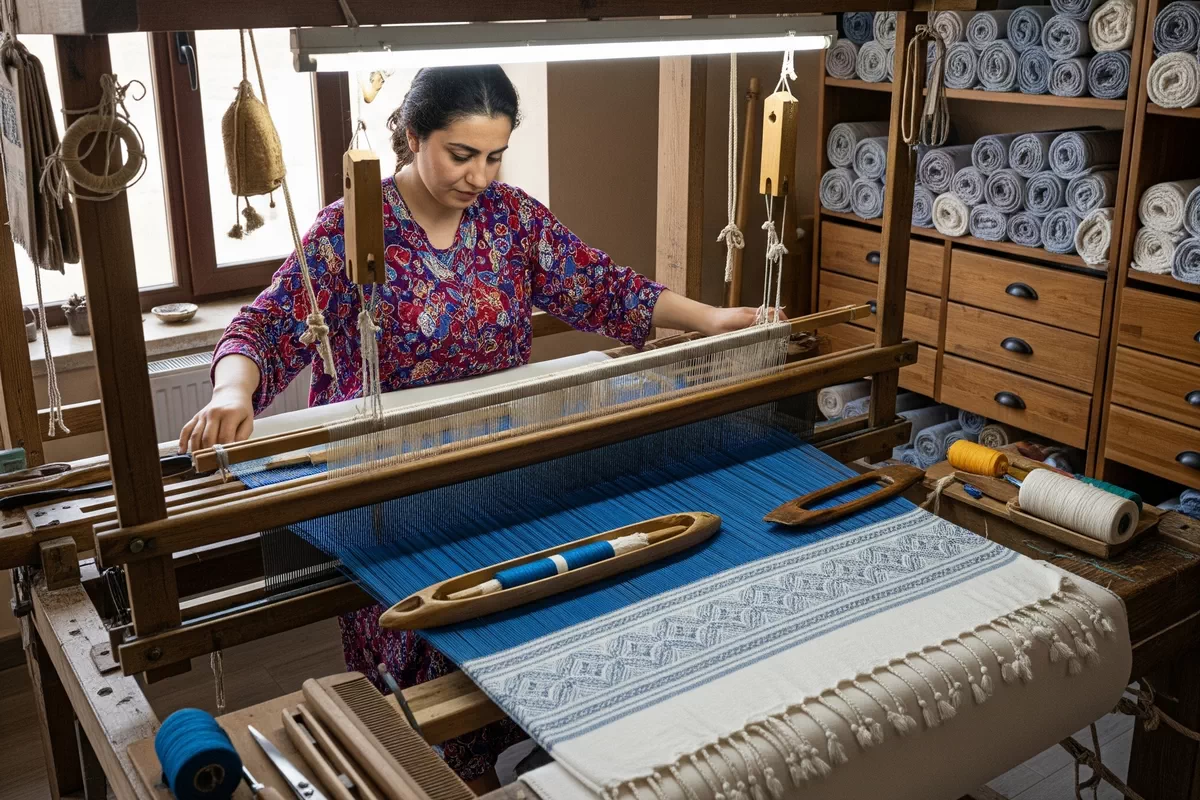
5. Delivery Time and Logistics Capability
Wholesale Peshtemal towel production is measured not only by production quality, but also by on-time delivery and accurate logistics planning. Especially for brands working in foreign markets, delivery time is directly related to direct sales and customer satisfaction. Therefore, when choosing a manufacturer, not only the question of “how many days does it take to produce” should be carefully evaluated, but also how it manages post-production processes.
Realistic Delivery Processes
Every manufacturer provides a delivery date, but what matters is whether this date is adhered to.
Key points to consider:
- Average delivery time for standard products: 7–15 business days
- Customized orders: 15–25 business days
- Additional requests such as packaging, embroidery, or custom labels: +3–5 days
- Discipline in providing advance notice of potential delays
Professional manufacturers clarify their production schedule in advance and notify any potential deviations in advance.
Logistics Alternatives
The manufacturer’s logistics infrastructure must be robust and proficient in different delivery methods:
- Domestic and international delivery options
- Delivery methods: EXW, FOB, CIF, DDP
- Integration with shipping companies: DHL, UPS, FedEx, road and sea transport options
- Delivery documents: Export invoice, A.TR, certificate of origin, certificate copies, packing list
Accurate documentation and proper shipping planning ensure that your product arrives on time without being held up at customs.
Packaging and Labeling Details
High-quality production loses its value if damaged during shipping. Therefore, the manufacturer’s packaging plan and product packaging skills are crucial.
- Number of items per box and product layout plan
- Product labeling: barcode, dimensions, color, serial number
- Cardboard quality, internal support materials (bubble wrap, kraft paper, cardboard dividers)
- Protection of products with individual packaging (makes a significant difference, especially in boutique sales)
Continuous Information and Transparent Tracking
Professional manufacturing companies keep the buyer informed at every stage of the process:
- Production started → estimated completion
- Quality control completed → packaging process started
- Logistics process → tracking number sharedThis transparency enables brands to plan effectively.
In summary:
On-time delivery is the most visible sign of professionalism. A quality product that arrives on time and in good condition adds real value to your brand. Working with the right manufacturer protects you from time losses, logistical chaos, and customer dissatisfaction.
6. Communication and Customer Support
The wholesale Peshtemal towel production process is not just about manufacturing and logistics. Effective communication and strong customer support at every stage are the foundation of a successful partnership. No matter how good your product is, if you don’t get timely feedback or can’t find solutions when you encounter problems, the process gets stuck and trust is lost.
Availability and Quick Response
A good manufacturer should always be accessible before, during, and after production.
- Effectively uses different communication channels such as WhatsApp, email, and phone
- Responds to questions within 24 hours at the latest
- Designates a responsible person who can take quick action in emergencies
Whether you are an e-commerce entrepreneur or a buyer for a large chain, no matter what your scale is, you want to be taken seriously and see regular communication.
Problem-Solving Competence
Things may not go as planned during the production process. What matters is how the manufacturer responds when problems arise.
- How do they solve color tone deviations?
- Are you informed if there is a delay in delivery?
- Is support provided for shipping-related damages?
- Is the compensation process clear if there is a quality issue?
Responsible, transparent, and constructive manufacturers become the strongest business partners in the long run.
Foreign Language Support (For Exporters)
For brands selling abroad, it is important to work with someone who can communicate effectively in English.
- Critical documents and details such as order confirmation, proforma invoices, and shipping processes must be communicated accurately.
- Professional manufacturers work with staff who have experience in international trade.
Information Sharing and Consulting
Working with a manufacturer who not only produces but also can guide you is a significant advantage.
- Recommendations tailored to the target market
- Material comparisons
- Updates on new trends
- Advice on labeling or packaging
This kind of support saves a significant amount of time and resources, especially for businesses looking to grow their brand.
In short:
The communication you establish with your manufacturer affects not only your order but also the direction of your brand. Working with manufacturers who have a solid communication infrastructure and strong customer support makes you not just a supplier but a true business partner.
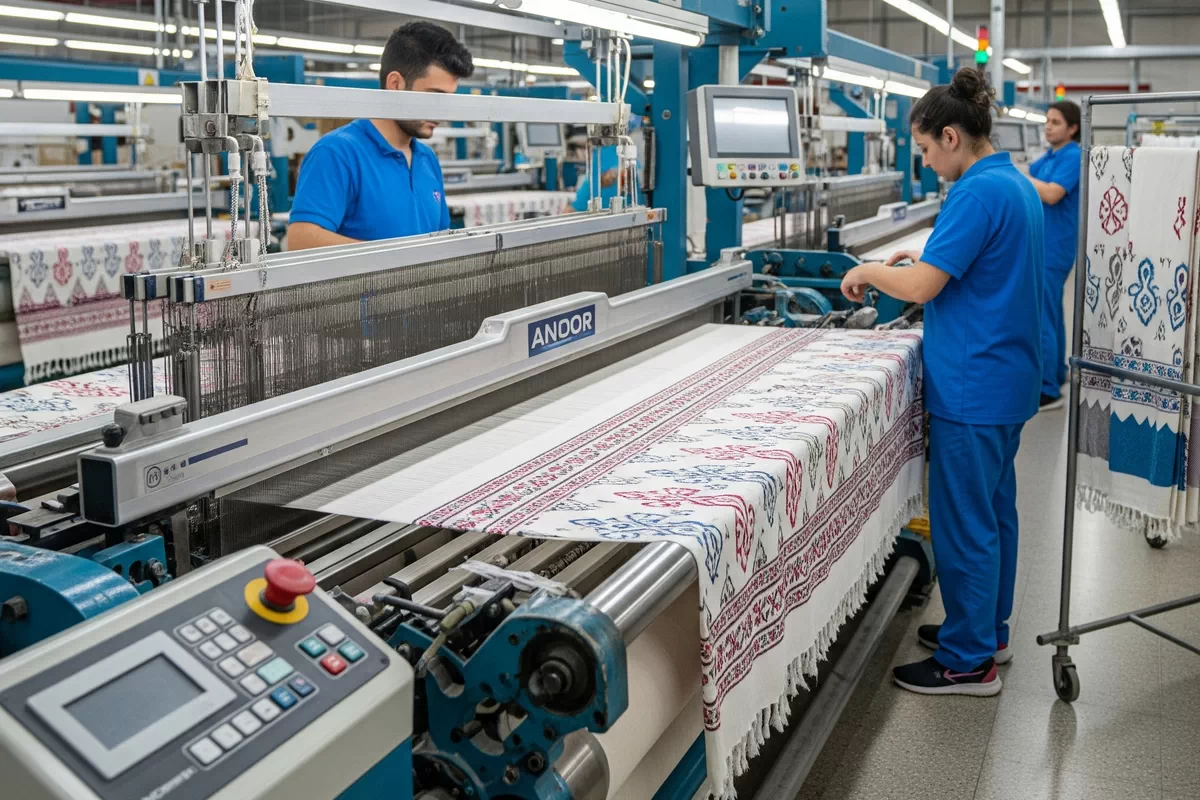
7. References and Experience
In a field such as wholesale Peshtemal towel production, which requires high volume and customization, experience is everything. Inexperienced manufacturers can risk both your time and money with small but critical mistakes. Therefore, before working with a manufacturer, you must evaluate their history, references, and position in the industry.
How Long Have They Been in the Industry?
Companies with master craftsmen who have grown up with the sound of the loom and started production without touching a thread produce not only products but also solutions.
- Companies with 5+ years of experience generally have more established processes in terms of quality, delivery, and customer satisfaction.
- A permanent staff, systematic production, and quality control discipline are more common in such companies.
Who Have They Worked With Before?
A good manufacturer does not hide the companies they work with; on the contrary, they share them with pride.
- The boutique brands, hotels, chain stores they have previously served, or the countries they export to are important indicators.
- Be sure to review reference logos, portfolio examples, and customer reviews on the website.
Tip: You can request past production samples or satisfied customer references from the manufacturer. Genuine manufacturers will gladly respond to this request.
Real Production Images and Videos
Fake manufacturer websites often use stock images.
- Real photos from the production facility, videos explaining the production process, and images of the staff are the strongest evidence that the company is actually manufacturing the products.
- Additionally, active use of social media accounts and up-to-date content are other important details to consider.
Openness to Long-Term Collaboration
Manufacturers who aim to grow with you, not just sell you a product once, are much more profitable in the long run.
- Post-order support
- New season collection suggestions
- Regular campaigns and offers
- Communication focused on continuous improvement
Thanks to this approach, the partnership becomes not just order-based, but a brand-based partnership.
In summary:
Working with well-known companies in the industry that have strong references and a transparent production history protects you from unforeseen problems. Experience is not just about getting the job done; it is about doing it on time, without issues, and in a sustainable manner.
Add Value to Your Brand with the Right Manufacturer
Wholesale Peshtemal towel production is not just a product supply process. In fact, this process is a critical investment that directly affects your brand’s quality, customer satisfaction, and long-term reliability. Therefore, choosing a manufacturer is much more than a simple cost calculation.
The 7 golden criteria we share in this guide are a summary of the experience we have gained as an expert in this industry for years and the real-life situations our customers have experienced. Quality production, transparent communication, timely delivery, customization flexibility, and strong references… All of these are the cornerstones of building a sustainable brand.
If you are an entrepreneur who prioritizes quality in the peshtemal product group, can produce solutions specific to your brand, and wants to work with a reliable manufacturer in the long term, you are in the right place.
📣 Take Action
✅ Contact us now for wholesale peshtemal towel production that is specific to your brand, high quality, and delivered on time.
👉 Take the first step, let’s build a long-term and profitable business partnership together!

